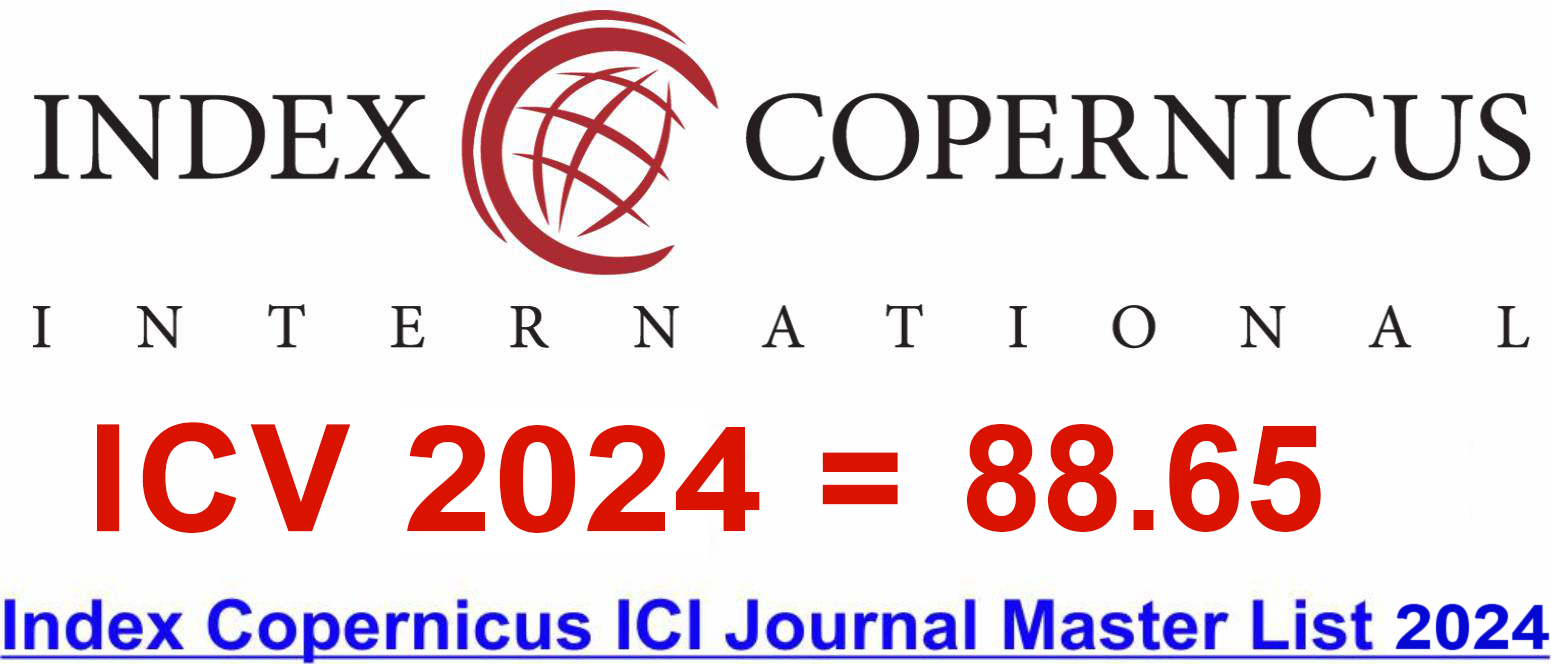Abstract
In the rapidly evolving world of digital commerce, offering tailored user experiences has emerged as a key factor in driving long-term success and staying ahead of the competition. With users generating vast amounts of behavioural data across various digital channels, e-commerce platforms face the dual challenge of interpreting this data effectively and translating it into actionable marketing strategies. Recommender systems have proven instrumental in this regard, offering predictive insights into consumer preferences. Conventional recommendation techniques, including collaborative filtering and content-based approaches, often struggle with limitations such as sparse data availability, cold-start problems, and a lack of contextual depth when used in isolation. To overcome these barriers, hybrid recommender systems have emerged as a robust solution, integrating multiple algorithmic strategies to deliver more precise, varied, and scalable personalized suggestions. This study investigates the application of hybrid recommendation models within targeted marketing frameworks in e-commerce. It examines various hybridization techniques, such as weighted, mixed, and switching models, and their effectiveness in tailoring product suggestions to user behaviour patterns. By analysing real-world e-commerce data, the research examines essential performance indicators such as click-through rates, conversion metrics, and the overall lifetime value of customers. Moreover, the research explores how insights from hybrid systems can be integrated into campaign automation tools, creating adaptive feedback loops for marketing optimization. Beyond algorithmic performance, the study addresses critical concerns including user privacy, algorithmic interpretability, and ethical personalization. The role of explainable AI (XAI) in enhancing user trust and regulatory compliance is also examined. Ultimately, this work offers a holistic framework for leveraging hybrid recommender systems to build responsive, user-centric digital commerce strategies.
References
- Reinartz W, Wiegand N, Imschloss M. The impact of digital transformation on the retailing value chain. International journal of research in marketing. 2019 Sep 1;36(3):350-66. https://doi.org/10.1016/j.ijresmar.2018.12.002.
- Roy D, Dutta M. A systematic review and research perspective on recommender systems. Journal of Big Data. 2022 May 3;9(1):59. https://doi.org/10.1186/s40537-022-00592-5
- Seth R, Sharaff A. A comparative overview of hybrid recommender systems: Review, challenges, and prospects. Data mining and machine learning applications. 2022 Feb 24:57-98. https://doi.org/10.1002/9781119792529.ch3
- Schmuck R, Benke M. An overview of innovation strategies and the case of Alibaba. Procedia Manufacturing. 2020 Jan 1;51:1259-66. https://doi.org/10.1016/j.promfg.2020.10.176.
- Afoudi Y, Lazaar M, Al Achhab M. Hybrid recommendation system combined content-based filtering and collaborative prediction using artificial neural network. Simulation Modelling Practice and Theory. 2021 Dec 1;113:102375. https://doi.org/10.1016/j.simpat.2021.102375.
- Sabiri B, Khtira A, El Asri B, Rhanoui M. Hybrid Quality-Based Recommender Systems: A Systematic Literature Review. Journal of Imaging. 2025 Jan 7;11(1):12. https://doi.org/10.3390/jimaging11010012.
- Maghami MR, Mutambara AG. Challenges associated with Hybrid Energy Systems: An artificial intelligence solution. Energy Reports. 2023 Dec 1;9:924-40. https://doi.org/10.1016/j.egyr.2022.11.195.
- Pramod D, Bafna P. Conversational recommender systems techniques, tools, acceptance, and adoption: a state of the art review. Expert Systems with Applications. 2022 Oct 1;203:117539., https://doi.org/10.1016/j.eswa.2022.117539.
- Bhumichai D, Smiliotopoulos C, Benton R, Kambourakis G, Damopoulos D. The convergence of artificial intelligence and blockchain: The state of play and the road ahead. Information. 2024 May 9;15(5):268. https://doi.org/10.3390/info15050268.
- Saini K, Singh A. Hybrid recommender system for e-commerce: A comprehensive. Journal of Harbin Engineering University. 2023 Aug;44(8).
- Burke R. Hybrid recommender systems: Survey and experiments. User modeling and user-adapted interaction. 2002 Nov;12:331-70. http://dx.doi.org/10.1023/A:1021240730564
- Reddy PS, Ashritha P. Digital Transformation's Effect on Supply Chain Management. International Journal of Advances in Business and Management Research (IJABMR). 2023 Dec 12;1(2):1-9. https://doi.org/10.62674/ijabmr.2024.v1i02.001
- Tibensky P, Kompan M. Context-aware adaptive personalised recommendation: a meta-hybrid. International Journal of Web Engineering and Technology. 2021;16(3):235-54. https://doi.org/10.1504/IJWET.2021.119874
- Himeur Y, Sohail SS, Bensaali F, Amira A, Alazab M. Latest trends of security and privacy in recommender systems: a comprehensive review and future perspectives. Computers & Security. 2022 Jul. https://doi.org/10.1016/j.cose.2022.102746.
- Wan M, Ni J, Misra R, McAuley J. Addressing marketing bias in product recommendations. In Proceedings of the 13th international conference on web search and data mining 2020 Jan 20 (pp. 618-626). https://doi.org/10.1145/3336191.337185
- Zhang Y, Tsang IW, Duan L. Collaborative generative hashing for marketing and fast cold-start recommendation. IEEE Intelligent Systems. 2020 Sep 18;35(5):84-95. https://doi.org/10.1109/MIS.2020.3025197
- Schilke O, Reimann M. The transparency dilemma: How AI disclosure erodes trust. Organizational Behavior and Human Decision Processes. 2025 May 1;188:104405. https://doi.org/10.1016/j.obhdp.2025.104405.
- Elahi M, Kholgh DK, Kiarostami MS, Oussalah M, Saghari S. Hybrid recommendation by incorporating the sentiment of product reviews. Information Sciences. 2023 May 1;625:738-56. https://doi.org/10.1016/j.ins.2023.01.051.
- Jingwen W, Lijuan C, Yuai L. Enhancing Approaches for Thriving in the Digital Economy. International Journal of Advances in Business and Management Research (IJABMR). 2024 Mar 12;1(3):45-52. https://doi.org/10.62674/ijabmr.2024.v1i03.005
- Biswas PK, Liu S. A hybrid recommender system for recommending smartphones to prospective customers. Expert Systems with Applications. 2022 Dec 1;208:118058. https://doi.org/10.1016/j.eswa.2022.118058.
- Jim JR, Apon M, Malakar P, Kabir MM, Nur K, Mridha MF. Recent advancements and challenges of NLP-based sentiment analysis: A state-of-the-art review. Natural Language Processing Journal. 2024 Feb. https://doi.org/10.1016/j.nlp.2024.100059.
- Nawi RM, Noah SA, Zakaria LQ. Issues and challenges in the extraction and mapping of linked open data resources with recommender systems datasets. Journal of Information Science Theory and Practice. 2021;9(2):66-82. https://doi.org/10.1633/JISTaP.2021.9.2.5
- Sathyanarayanan S, Tantri BR. Confusion matrix-based performance evaluation metrics. African Journal of Biomedical Research. 2024:4023-31. https://doi.org/10.53555/AJBR.v27i4S.4345
- Burke R. Hybrid recommender systems: Survey and experiments. User modeling and user-adapted interaction. 2002 Nov;12:331-70. https://doi.org/10.1023/A:1021240730564
- Tripathi S, v Chaturvedi R. Exploring ethical considerations in research: Guidelines and practices. Adhyayan: A Journal of Management Sciences. 2023 Jun 27;13(01):41-5. https://doi.org/10.21567/adhyayan.v13i1.08
- Parthasarathy G, Sathiya Devi S. Hybrid recommendation system based on collaborative and content-based filtering. Cybernetics and Systems. 2023 May 19;54(4):432-53. https://doi.org/10.1080/01969722.2022.2062544
- Dang CN, Moreno-García MN, Prieta FD. An approach to integrating sentiment analysis into recommender systems. Sensors. 2021 Aug 23;21(16):5666. https://doi.org/10.3390/s21165666
- Pratib D, Kumar R, Hegade GV, Wadeyar HR, Shetty MS. An Advanced Movie Recommendation System Leveraging Alternating Least Squares and Apache Spark for Scalable Data Processing. In2024 8th International Conference on Computational System and Information Technology for Sustainable Solutions (CSITSS) 2024 Nov 7 (pp. 1-6). IEEE, https://doi.org/ 10.1109/CSITSS64042.2024.10816904
- Kekevi U, Aydın AA. Real-time big data processing and analytics: Concepts, technologies, and domains. Computer Science. 2022 Nov;7(2):111-23. https://doi.org/10.53070/bbd.1204112
- Ferrara E. Fairness and bias in artificial intelligence: A brief survey of sources, impacts, and mitigation strategies. Sci. 2023 Dec 26;6(1):3. https://doi.org/10.3390/sci6010003
- Siepmann C, Chatti MA. Trust and transparency in recommender systems. arXiv preprint arXiv:2304.08094. 2023 Apr 17. https://doi.org/10.48550/arXiv.2304.08094
- Fayyaz Z, Ebrahimian M, Nawara D, Ibrahim A, Kashef R. Recommendation systems: Algorithms, challenges, metrics, and business opportunities. applied sciences. 2020 Nov 2;10(21):7748. https://doi.org/10.3390/app10217748
- Geetha G, Safa M, Fancy C, Saranya D. A hybrid approach using collaborative filtering and content-based filtering for recommender system. InJournal of physics: conference series 2018 Apr 1 (Vol. 1000, p. 012101). IOP Publishing. https://doi.org/10.1088/1742-6596/1000/1/012101Z
- Khan ZY, Niu Z, Nyamawe AS, Haq I ul. A Deep Hybrid Model for Recommendation by jointly leveraging ratings, reviews and metadata information. Engineering Applications of Artificial Intelligence. 2021 Jan; 97:104066.https://doi.org/10.1016/j.engappai.2020.104066.
- Shuchen Z. Government Expenditure on Economic Growth: Empirical Evidence from Ghana. International Journal of Advances in Business and Management Research (IJABMR). 2024 Jun 12;1(4):27-41. https://doi.org/10.62674/ijabmr.2024.v1i04.004
- Valencia-Arias A, Hernán Uribe-Bedoya, González-Ruiz JD, Santos GS, Edgard Chapoñan Ramírez, Rojas EM. Artificial intelligence and recommender systems in e-commerce. Trends and research agenda. Intelligent Systems with Applications. 2024 Dec;24:200435. https://doi.org/10.1016/j.iswa.2024.200435
- Zhou H, Xiong F, Chen H. A comprehensive survey of recommender systems based on deep learning. Applied Sciences. 2023 Oct 17;13(20):11378. https://doi.org/10.3390/app132011378















